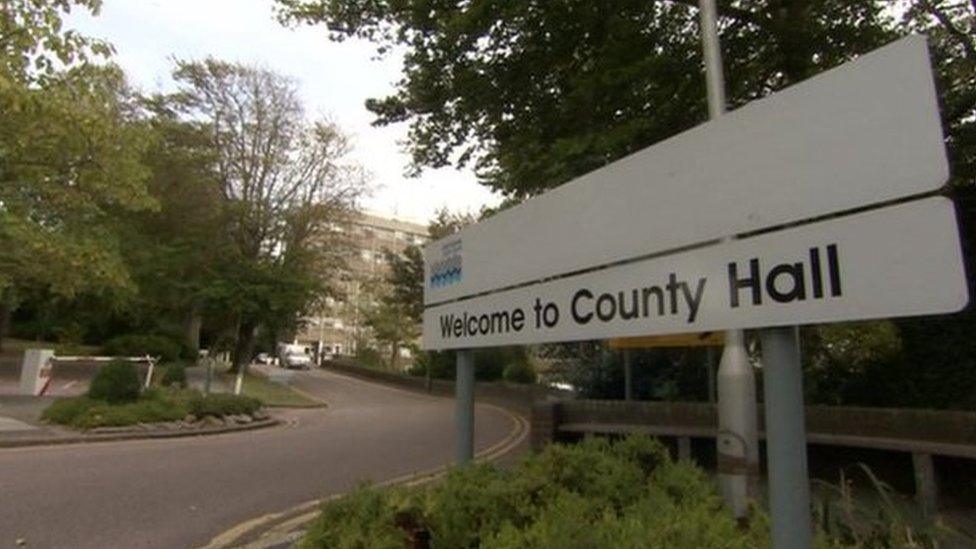Government cash helps slash East Sussex council cutbacks
- Published

East Sussex says that good financial management and one-off government support has helped it reduce its proposed cutbacks
Relieved councillors at a cash-strapped local authority have discovered they do not have to make the extreme budget cuts they initially feared.
East Sussex County Council said a saving target of £45m over three years had been reduced to £26.3m.
It said fierce lobbying had secured some concessions from the government, and more income had bolstered finances.
But some expenses, including the council's meals-on-wheels subsidy, did not escape the axe.
The council, which covers some of the most deprived areas of south-east England, warned last year that it would be unlikely to fund even a bare minimum programme of services, as outlined in its Core Offer, external document.
Millions still needed
It calculated it needed to save more than £45m by 2021-22 but chief executive Becky Shaw said a number of one-off contributions for the coming year had enabled it to reduce its proposed cutbacks.
The government settlement for councils includes extra allowances for children's and adult social care and funding for special educational needs, and East Sussex also stands to benefit from participation in a business-rate pilot.
But while savings of £5.1m for the coming year have been costed, only £7.2m of potential savings to cover the expected £21.2m deficit in the following two years has currently been identified.
Ms Shaw said: "This means the need for further lobbying remains significant."


The council's cabinet recommended on Tuesday that the council approve the £375m budget for 2019-20 at its meeting on 5 February.
The budget requires £5.13m of savings and will also require a council-tax increase of 2.99% - the maximum permitted - which would add 80p to the average weekly council tax bill in the county.
Savings include axing its £438,000 meals-on-wheels subsidy, which would leave customers to foot the entire bill.
Lead member for resources David Elkin said: "Balancing the budget over the next three years still involves extremely difficult savings proposals. However, it is my belief we must bring a degree of certainty in extremely uncertain times.
"This plan, for the next three years, allows us to do that."
- Published5 November 2018

- Published3 August 2018

- Published6 March 2018
